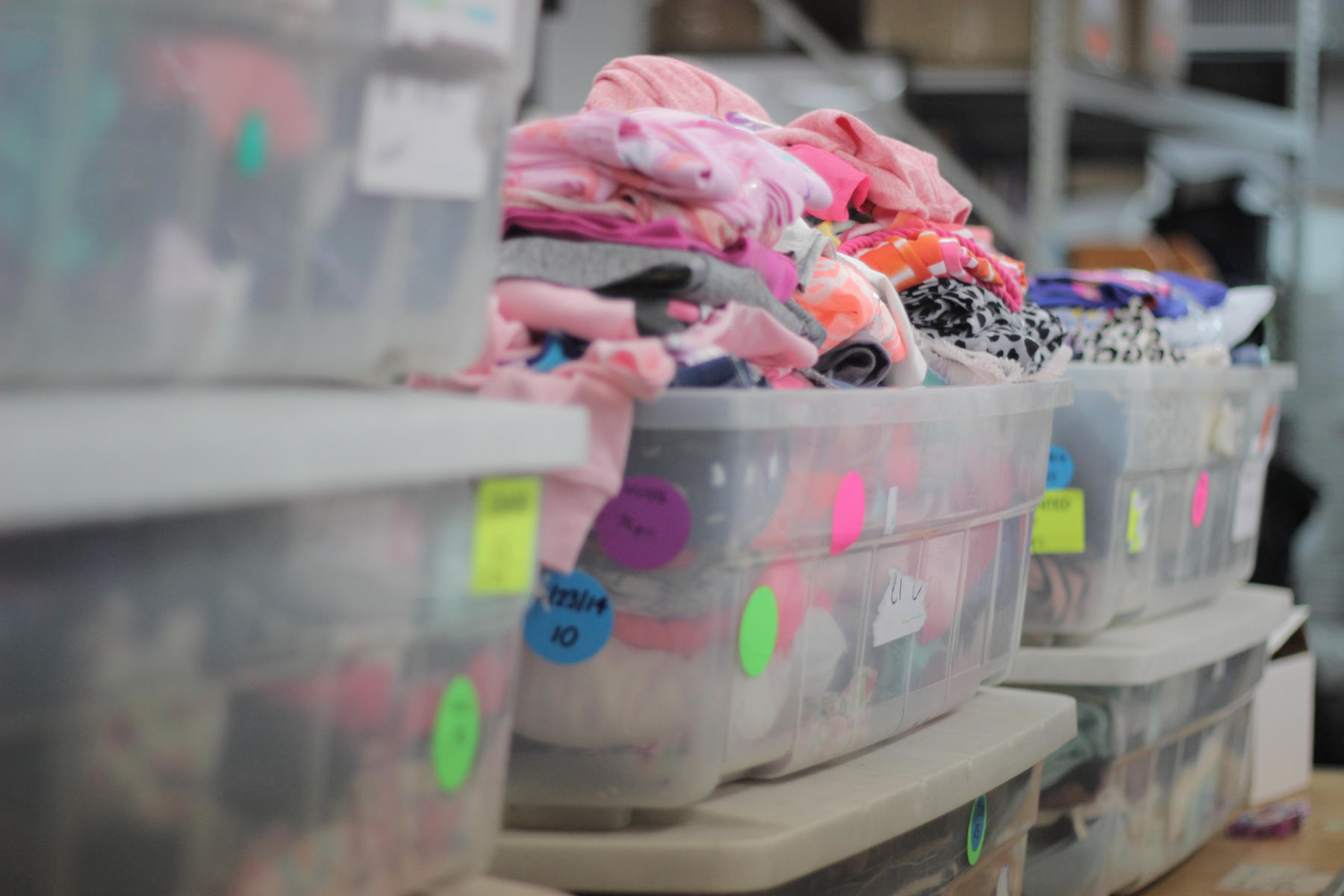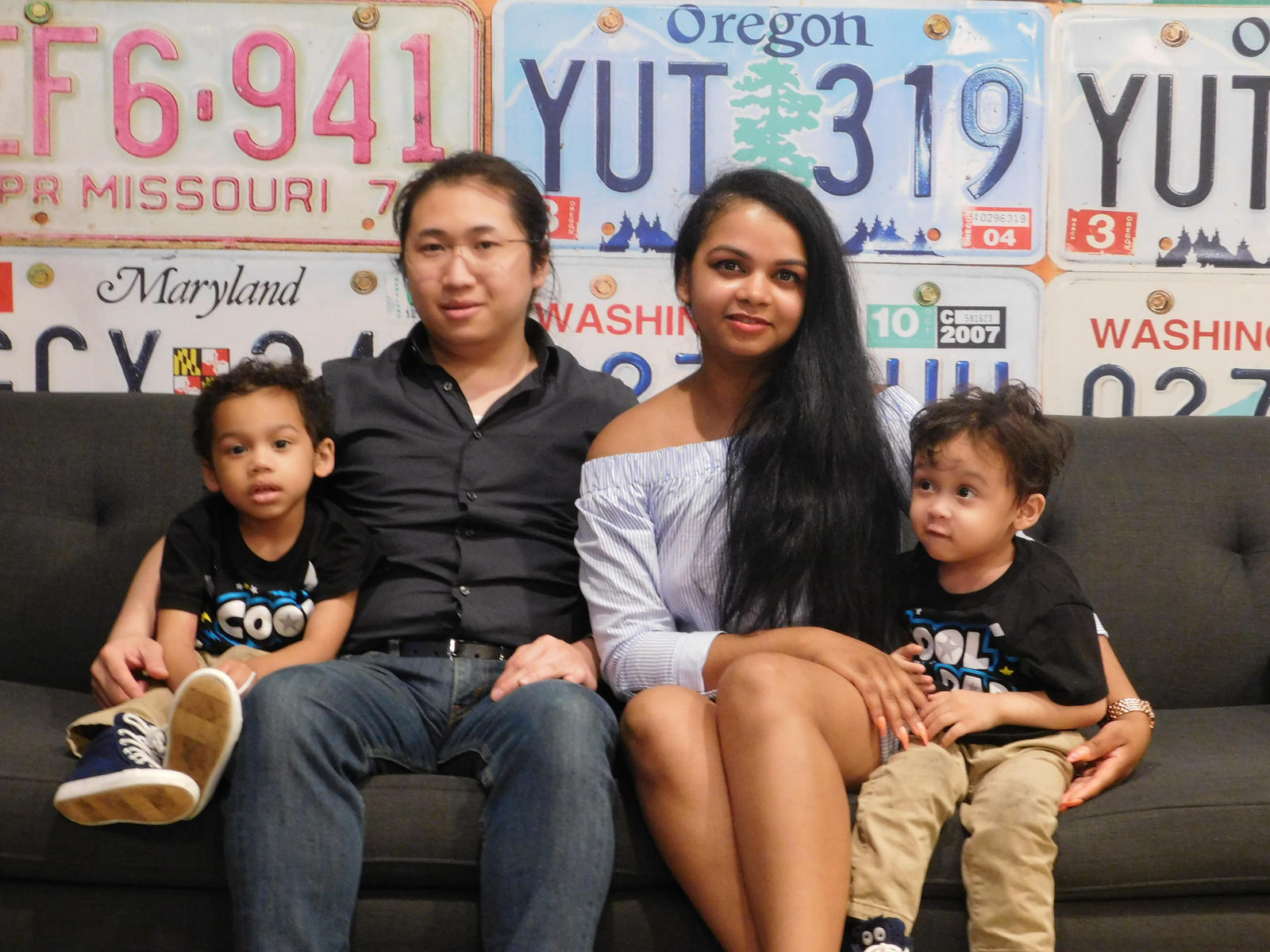
At 25, Cindy Del Villar’s future looked promising. Head over heels with the guy she figured was Mr. Right, she found out she was six weeks pregnant. But when she told him, he panicked and left. That’s when her life began a fast downward spiral. Health problems and a difficult pregnancy caused her to lose all three of her jobs, and she became homeless, unable to manage New York City’s pricey rents. Without a network of family to fall back on, Del Villar wound up in a homeless shelter for pregnant women.
Fast-forward four years, and she’s a happy mother of two. She carries Caleb, 4, on her hip, while 2-year-old Noa runs around her with a train. And Lester Hui, her partner, beams nearby. “I went back to college and recently opened a day-care center so I can make money and be with my kids,” she says. “I’m looking forward to giving them the kind of childhood I’ve always dreamed about.”
How did she do it? Not on her own, as she’ll be the first to tell you. Raising kids requires plenty of stuff, and thanks to helpful nonprofits—including the Nurse-Family Partnership (NFP), a community health program that helps low-income women who are pregnant with their first child, and Good Foundation, a network of organizations that supplies families in need with baby gear and services—she got the right stuff just when she needed it most.
I feel like every mom should have this support,” she says about the donated strollers, cribs, playpens, toys, and clothing that Good Foundation provides. Nor is it just about the material things she received—clothes, diapers, and car seats. “If these organizations weren’t there to tell me I could do it, I wouldn’t have had the courage,” she says. “What they really gave us was peace of mind, so we could concentrate on learning how to be a family.”
From Homeless to Hopeful
Not many moms understand as well as Del Villar how little stands between them and hard times, and how vulnerable women without a safety net can be. She was born in the Dominican Republic and came to the U.S. when she was 4, with her mother, brother, and sister. Her upbringing was rough.“My mom was strict—she was an old-school Hispanic mom,” Del Villar says. “She took us back to the Dominican Republic to be with our father when I was 14, but we didn’t really know him. And seven months later, when he couldn’t provide for us, we were sent back to America and scattered around to relatives and friends.”
After her boyfriend left her, Del Villar believed she could make it on her own. In addition to her evening shifts as a dispatcher for a car company, she took a day job at a home day care. (The owner let her stay there, and she’d sleep in between her day and night shifts.) She also picked up babysitting jobs. But as her due date got closer, she got sick—first, a heart condition that required her to wear a monitor, and then dehydration. Her face, feet, and hands all became swollen from undiagnosed preeclampsia.
At a prenatal visit at a local hospital, a nurse told her about the NFP. “I had no idea what it was, but she said, ‘Call these people. They’ll help you,’ ” Del Villar recalls. A nonprofit aimed at protecting at-risk children, NFP pairs women in their first pregnancy with a nurse who visits them regularly until their child turns 2. Along with their visits to help ensure healthy pregnancy, delivery, and child development, the nurses are also problem-solvers and resource-finders. Joanne Schmidt, an NFP nurse, took on Del Villar’s case, making sure her doctors evaluated her for preeclampsia and answering her questions about delivery.
When her night job came under new management, Del Villar was laid off, and then the day-care center folded, forcing her to live with friends. Schmidt convinced her that settling in a shelter would be less stressful than couch surfing. She also helped her get an application started for welfare benefits, but there was a time where she was so broke she couldn’t afford to eat. And when baby Caleb finally arrived, she walked out of the hospital with him to a homeless shelter for new moms. “I had nobody to call,” she says. “I was facing the hardest and scariest thing that had ever happened to me. I laid him on the bed, watched him sleep, and put my head down and cried.”
Scratching together money for formula and diapers was a day-to-day struggle, including a few demoralizing days of walking into small stores and asking the owners for handouts. And while Del Villar knew this is a common practice among struggling women and Dominican shopkeepers, it stung. “One store owner gave me a few cans of Similac and two bags of diapers and wipes,” she says. “Another woman helped me buy plantains, eggs, and a little rice.” (She’s since paid them back.) “I was so ashamed and angry but thankful at the same time,” she says. “I used to have my own apartment and always had money.”
Finding Her Feet
Fortunately, after two weeks her SNAP benefits kicked in and Schmidt helped her settle into new motherhood at the shelter. Best of all, Schmidt connected her with Good Foundation. “I started getting clothes and toys, even lotions and washes, that I wouldn’t have been able to afford on my own,” Del Villar says. “If you walked into my apartment at the shelter, you would have thought someone had thrown me a huge baby shower.”
She’s grateful for the shelter, too, where she lived for about six months. “It was comfortable and it wasn’t dangerous,” she says, and it gave her time to step back from the day-to-day struggles of parenting and make bigger-picture decisions about her life. Del Villar went back to school, taking online classes from a local community college.
By then, she had met Hui, who works as an MRI technician and was as committed to baby Caleb as he was to her. “He was the missing piece of my puzzle,” she says. The two moved in together, but shortly after, they got a bombshell: Caleb was diagnosed with autism. “I knew something wasn’t right,” she says. “He wouldn’t make eye contact or smile. Because I had worked in day care and with foster kids, I knew a little about it. But you never think it is going to happen to you.” Schmidt, who had helped get him evaluated early on, also guided the family through the complex process of finding early sensory therapy, with a teacher coming to their home to work with Caleb one-on-one.
Del Villar and Hui decided to have another child, and that pregnancy was even more difficult, including periods of mandatory bed rest. As the demands of Caleb’s therapy increased, they decided to move in with Hui’s parents. The family no longer qualified for any public assistance because of Hui’s earnings, but they also felt trapped: Del Villar couldn’t work outside the home because they couldn’t afford day care.
“It was overwhelming,” she recalls. “Caleb was almost 2, and about to age out of the NFP program. The therapists started telling us we’d need to buy these special toys that were going to help him develop. Lester went out and bought just two sensory toys, and they cost $200. And we needed a bed for Caleb because the new baby was coming.”
Again, Schmidt suggested she contact Good Foundation. Besides providing baby essentials to parents, the nonprofit partners with more than 155 antipoverty programs around the country, including fatherhood initiatives and infant health organizations. While parents aren’t required to participate in any of these partner programs to receive donations, the organization has a vast network of experts to tap into. So when Good Foundation gave Del Villar everything she asked for, including a toddler bed, it also provided even more. “When they gave us toys designed to help Caleb with his sensory issues, I started bawling my eyes out,” she says. “It was a huge weight off our shoulders.”
The young family is still coming to terms with what it means to have a special-needs child. “I didn’t feel terrible about the diagnosis itself, but I worried how people would treat Caleb when they found out,” she says. “He’s still Caleb and he’s still our little boy.” They enrolled him in a year-round preschool tailored to his needs, and they’ve been thrilled with his progress.

Advice for Her Younger Self
If she could, she’d like to go back in time and tell herself that it was going to be okay. “I’ve been so hard on myself, and I still second-guess everything,” she says. “But then when I step back and look at myself from a different point of view, I realize I’m doing pretty well.”
She and Hui are planning their future, including another child down the line. “We’d like a girl,” she admits. “And I want to keep the day-care business going. I love to read and write. Besides working on a memoir, I’m an active blogger. I hope to instill that love of literature in my kids. I want them to be happy because I have struggled a lot. And I want them to love each other and to have that bond.”
She also wants the world to know that she’s thankful for the help she’s gotten and hopes to pass it on as much as possible. “It means a lot to me that I’ve been able to refer other parents to these programs,” she says. “Moms need all the support they can get.”
Parents Magazine


